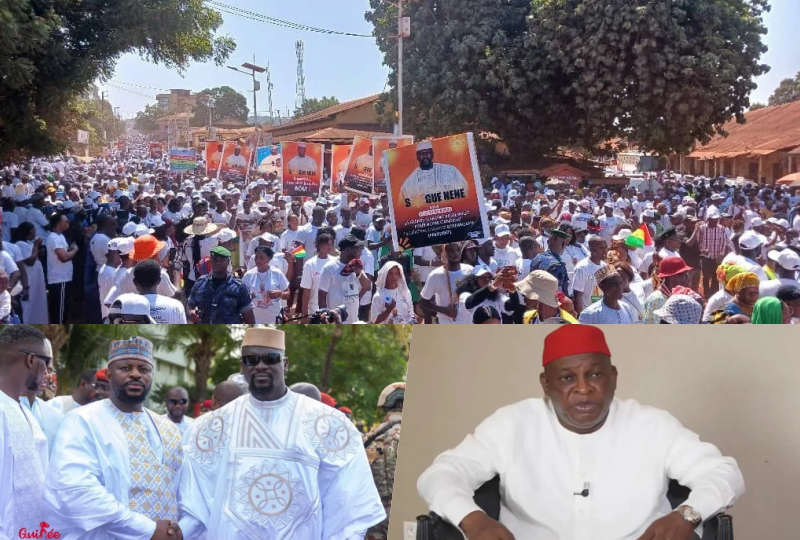Gambiaj.com – (CONAKRY, Guinea) – With Guinea’s December 28 presidential election drawing closer, speculation is intensifying over whether transitional leader General-President Mamadi Doumbouya will enter the race, despite having promised not to contest when he seized power from Alpha Condé in September 2021.
The transition charter explicitly bars members of the National Committee for Development and Rally (CNRD) from standing for election. Yet, in recent weeks, calls urging Doumbouya to run have multiplied—coming from former junta leaders, cabinet members, and political movements.
One of the most notable endorsements came from General Sékouba Konaté, who headed Guinea’s 2010 transition. Speaking from Cameroon during an election observation mission, Konaté told VoxAfrica that Doumbouya’s candidacy would reflect the will of the people.
“Guinea is a complete rebuilding project. The living conditions of Guineans have improved. There have been many recruitments in the civil service. Everything is up to the people to decide,” Konaté said, arguing that Doumbouya’s record justified continuity.
Invoking the recently promulgated Constitution, Konaté added, “No one should be excluded. Democracy is the power of the people, by the people, and for the people. If the people ask President Doumbouya to run, he must listen.”
At home, political movements have intensified mobilization. The Sogué Nènè Movement, among the earliest support groups for the CNRD, is campaigning openly for a first-round victory for Doumbouya.
Its strategy includes rallies, billboard campaigns, and social media content presenting the transitional leader as “the man of stability and development.”
“We must rise up en masse for a victory in the first round,” declared the group’s president, Ibrahima Lincoln Sylla, linking their efforts to the recent constitutional referendum.
Cabinet members have also joined the chorus. Culture and Crafts Minister Moussa Moïse Sylla told supporters of the Presidential Youth of Guinea (JPG) that Doumbouya’s candidacy “will take place,” framing it as a divine calling.
He dismissed critics who cite Doumbouya’s earlier pledge not to run, saying that “a statesman must evolve with his people rather than lock himself into immobility.”
Meanwhile, Guinea’s electoral authority confirmed that around fifty political parties and more than ten independent candidates have declared their intention to contest the December election.
The Director General of Elections, Djénabou Touré, announced that these groups have submitted their documentation and nominated representatives to the ad hoc committees overseeing sponsorship validation and campaign finance limits.
For many observers, Konaté’s endorsement marks a symbolic turning point, expanding the circle of voices pushing Doumbouya to stay in power and reigniting debate over the fragile line between military legacies and Guinea’s long-promised return to civilian democratic rule.










